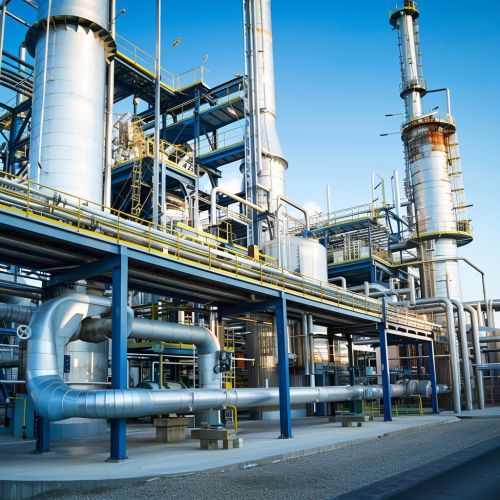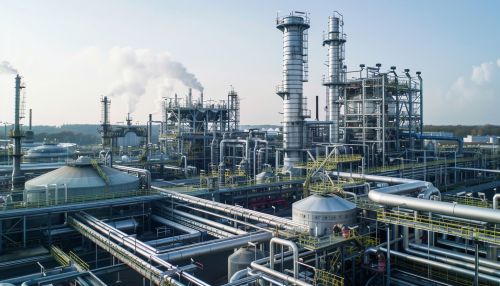Chemical industry
Overview
The Chemical industry is a broad sector of the global economy that produces a wide array of chemicals and related products. This industry is fundamental to the world's economy, converting raw materials such as oil, natural gas, air, water, metals, and minerals into more than 70,000 different products.
History
The chemical industry has a long history, dating back to ancient times when early civilizations used basic chemical reactions to produce materials like metals, pottery, and dyes. The modern chemical industry, however, began in the late 19th century with the advent of the Industrial Revolution. This period saw significant advancements in chemical production, particularly in the development of synthetic dyes and the large-scale production of sulfuric acid and soda ash.


Chemical Processes
Chemical processes are at the heart of the chemical industry. These processes involve the transformation of raw materials into a variety of products through chemical reactions. Some of the most common chemical processes include distillation, crystallization, polymerization, catalysis, and fermentation. Each of these processes requires a unique set of conditions and catalysts to facilitate the desired chemical reactions.
Sectors
The chemical industry is divided into several sectors based on the type of products they produce. These sectors include:
- Petrochemicals: This sector produces chemicals from petroleum and natural gas. These chemicals are used as raw materials for a wide range of products, including plastics, rubber, and synthetic fibers.
- Inorganic chemicals: This sector produces chemicals that are not based on carbon. These chemicals include acids, alkalis, salts, and minerals.
- Organic chemicals: This sector produces chemicals that are based on carbon. These chemicals include solvents, dyes, detergents, and pesticides.
- Specialty chemicals: This sector produces a wide range of chemicals that are used for specific applications. These chemicals include coatings, adhesives, sealants, and industrial gases.
- Pharmaceuticals: This sector produces drugs and other healthcare products. Pharmaceuticals are typically the most profitable sector of the chemical industry.
Environmental Impact
The chemical industry has a significant impact on the environment. The production of chemicals often involves the release of pollutants into the air, water, and soil. These pollutants can have harmful effects on the environment and human health. In recent years, the chemical industry has made efforts to reduce its environmental impact through the development of green chemistry and sustainable manufacturing practices.
Future Trends
The future of the chemical industry is likely to be shaped by several key trends. These include the increasing demand for sustainable and environmentally friendly products, the growing importance of bio-based and renewable raw materials, and the ongoing digitalization of chemical processes.
